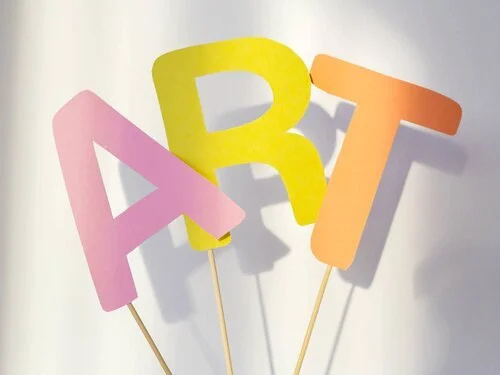
Educational Blogs from Our Mental Health Therapists
Learn about common challenges, including depression, anxiety, relationships,
trauma, and more, written by Maryland therapists!
Topic
- Anxiety
- Art in Therapy
- Biases
- Boundary Setting
- Brainspotting
- Burnout
- Business Owners
- COVID-19
- Careers
- Children & Teens
- Cognitive Behavioral Therapy (CBT)
- College Students
- Communication Skills
- DIY Crafts
- Depression
- Dialectical Behavior Therapy (DBT)
- Emotional Regulation
- Faith-Based
- First Responders
- Grief and Loss
- Highly-Sensitive Person
- International Clients
- Internships
- Ketamine-Assisted Psychotherapy
- LGBTQIA
- Men's Issues
- Mindfulness
- Motivation
- Neurodivergence
- Online Counseling
- Oppression
- Parenting
- Recovery
- Relationships
- Resources
- Sex Therapy
- Trauma and PTSD
- Women's Issues
- Workshop
Alternatives to Medications for Anxiety and Depression
If you are suffering from anxiety and/or depression, you may be relieved to know that there are many effective treatments that do not involve pharmaceutical medications. A combination of lifestyle changes and therapies can help alleviate these conditions and improve overall health and well-being.
Broken Pencil: An Original Poem Written by a Maryland Therapist
A client once said to me…
Maybe the purpose of life is finding your purpose
Otherwise you’re not really living, just waking up.
Those lines have always resonated with me
Because maybe life really is that simple
Simply living so that eventually I could find me…
An original poem by Dereka Ross, LCPC
Four Free Apps That Offer Quick Mindfulness Activities and Meditations
In a world where technology has taken over and everything is so readily accessible in the palm of our hand, it comes as no surprise that there are endless tasks we can manage by simply unlocking our smartphones. Banking, messaging, tweeting, and emailing. The list goes on! But did you know that you can work on your mental health by downloading a simple app?
In this post, I’ll be going over some of my favorite, free mental health apps I like to use on a daily basis! Feel free to give them a try and see whether they’re the right ones for you!
Organization Strategies for College Students to Help Time Management
Strong organization strategies can be extremely helpful for completing everything you need to get done and for maximizing your time. Having strong organizational skills helps maintain and support time management. Organization is very important for many aspects of your life, but particularly college. Keep reading if you are looking for some easy small steps to help with organization!
Ways to Improve Your Time Management Skills to Reduce Stress
Hectic schedules can be quite distressing and intimidating. Sometimes it can feel like we have a million things to do and no time to do it, or it may feel like we have so many things we want to do but are unsure when to fit it in. Having strong and reliable time management skills is very important for reducing the stress associated with situations like this. Time management skills can be beneficial in a variety of settings such as college, graduate school, parenting, careers, social activities, and engaging in self care. Strong time management skills can help to make sure you complete the things you have to do, and find time to do the things you want to do.
What is Cognitive Behavioral Therapy & How Does it Work?
In the field of counseling there are an endless number of approaches that are used for working with clients and various mental health concerns. Of these approaches, one of the most commonly used and talked about is Cognitive Behavioral Therapy (CBT).
How to Care for Yourself When Someone in Your Life Will Not Seek Therapy
Sometimes, the people we care about are struggling with their mental health and are not willing to seek help. If you have already tried talking to them and the conversation did not go well, you may be left feeling frustrated, confused, and unsure of how to proceed. Unfortunately, there are times when other people’s unwillingness to seek counseling causes distress in our own lives. This article will talk about how you can look after yourself when you are feeling the burden or ramifications of someone close to you not seeking therapy.
How to Encourage Someone to Seek Counseling in an Open and Honest Way
Sometimes the people closest to you struggle with their mental health, and it can be difficult to see them struggle. It can be equally difficult to initiate a conversation about what you’re observing. If you really want your friend or family member to get the help they need, however, this conversation is an important step.
How to Creatively and Effectively Address Stressful Issues Using Art in Therapy
When incorporating art into therapy, the emphasis is on the artmaking process. It’s not about how well you can draw or how talented you are. Instead, we focus on the thoughts and emotions that surface during the activity. For a better understanding of how this works, let’s look at a common art activity, also known as an art directive.
How Do I Know If I Am Having a Panic Attack, and What Can I Do About It?
Having a panic attack can be really unsettling. Sometimes people have a sense of impending doom or think they’re having a heart attack. They may also find themselves going to the emergency room as a result. This article will help you identify symptoms of panic attacks as well as some strategies you can use to help.
Quick Everyday Mindfulness Activities
Mindfulness is about working to be present in your current activities and moments. Additionally, it has been shown to help alleviate the intensity of anxiety symptoms. Sometimes mindfulness activities can seem daunting to fit into your schedule, or complicated to execute. Here are some quick ways that you can incorporate more mindfulness into your day.
Coloring Pages to Help Ease Your Mind
Nowadays, there are so many methods of de-stressing and spending our down time. We have television, smartphones, more nature-based activities such as hiking, jogging, or sightseeing, amongst many others.
The fact of the matter is that there is no right or wrong way to de-stress and relax, as we’re all different and we all have our own hobbies, preferences, and passions! Fortunately, there’s something for everyone, no matter what that may look like. Sometimes, trial and error have to be done to find the right activity for you.
Helping the Helper: Facilitating Mental Wellness for Police Officers
Every day, police officers are responding to critical incidents that can impact their health and mental well-being. Sometimes the impact is immediate and evident; other times, it’s insidious and builds over time. This can lead to officers developing poor coping mechanisms, physical problems such as digestive issues, and experiencing symptoms of post-traumatic stress disorder (PTSD). What can police departments do to help the helper?
Quotes to Help You Keep Your Anxiety in Check
While there are a number of really great coping strategies that can help us manage our anxiety and worry, sometimes a quote sticks with us, making it even easier to remember key concepts. If you deal with anxiety, you just might relate to some of the quotes in this blog. Pick the one that resonates with you, and keep it handy when you need a gentle reminder.
Concrete Steps for Managing Your Worry
One of the most common (and annoying) symptoms of anxiety is worry. The things you worry about may vary, depending on the specific type of anxiety you personally experience. Regardless of whether you deal with the everyday anxiety that everyone experiences, generalized anxiety, social anxiety, panic attacks, or a specific phobia, you can find strategies in this blog to help. As with all things, “take what you need, and leave the rest.”
How to Create a Sensory Tool Kit for Anxiety & Worry
A sensory tool kit is a small bundle of items that you will assemble and use to keep you calm and grounded. Each item in your sensory tool kit will appeal to one of your five senses (sight, touch, sound, taste, and smell). Grounding with the use of your 5 senses can be helpful if you have a tendency to get caught up in anxious thoughts about the future, or if you tend to get caught up in the past due to trauma or depression. Either way, using the items in your sensory tool kit can help bring you back to the present.
Commonly Asked Questions from New Clients
As LifeSpring’s virtual assistant, I’m the first person you’ll speak to and, hopefully, schedule an appointment with when giving our office a call! With that being said, I also encounter a lot of curious clients who have questions regarding the counseling process, what to expect, and what their next steps will be.
For many, seeking counseling is a huge step, yet a life-changing one. It’s completely normal to be nervous, unsure, or fearful at what this process will be like for you. When talking with me, I aim to be a helping hand as I get you connected and scheduled with a therapist that's right for you.
Brainspotting vs. EMDR: How They’re Similar & How They’re Different
Mental health providers and potential clients often ask us about Brainspotting and how it’s different from EMDR. As someone who is trained in EMDR and Brainspotting, I am happy to answer. I want to be up front that I have a personal preference for Brainspotting, and I’ll make note of some of the reasons throughout. As you read, however, please make note that both treatment modalities are effective. There are many paths to healing, so it’s important that you find the one that fits for you. As a mental health counselor, the same is true, and Brainspotting is the modality that is a better fit for me.
Nine Strategies to Support You Through Election Anxiety
Record numbers of voters came out to vote this election cycle from both sides of the aisle. Tension and anxiety is running high as the continuity of people's values and beliefs are coming into play. If this cycle proves to be anything like the election of 2000, we may be in for the long haul as recounts and court decisions are made before deciding on the outcome of our next presidential election. In the meantime, millions of people are left with a feeling of anxiety and fear. Some of the anxiety is what we call “anticipatory anxiety,” meaning that we worry about what may happen or play out as things progress. The problem is that there is no way to know what will result, and the best we can do is to keep ourselves emotionally healthy during the process.
How to Help a Friend Who is Thinking About Suicide
The topic of suicide is one that can make people feel really nervous. The average person isn’t trained to recognize the warning signs of suicide or how to respond in a way that’s helpful. As a result, we can feel panicky and helpless when someone we know shares that they’re having these thoughts. Here are some steps you can take to help a friend, family member, or colleague who discloses that they’re thinking about suicide.




















